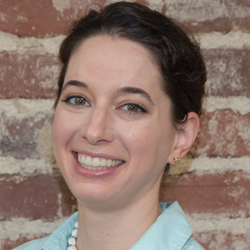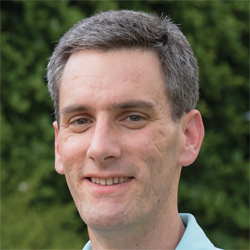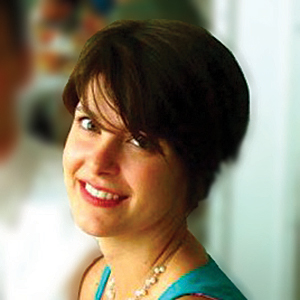Tips and tricks for those of you applying for faculty jobs
Are you thinking about applying for faculty positions this year? Your first interaction with the faculty search committee will be through your application package, so it is crucial that you take the time to put together a polished and well-edited application.
The American Society for Biochemistry and Molecular Biology’s Education and Professional Development Committee recently invited three faculty members to describe what faculty search committee members are looking for when they review your materials. Here are excerpts from the resulting webinar.
Nathan Vanderford

Before applying for any faculty position, thoroughly research the department to make sure you are a good fit. Departments often are looking to hire researchers who fill a certain research niche or are experts in a specific new technology or method, something that will complement ongoing work at the institution. Be sure to highlight these skills in your cover letter or research statement.
It is very forward-thinking for applicants to consider how they’ll be mentored and how receptive they’ll be to mentoring. Identify a few people within the department that you’d like to be mentored by, and use this to tailor your application package.
Dorothy Lerit

Write a succinct cover letter (about a page) highlighting why you’re applying for this position and why you are a good fit. This is a good place to highlight your top accomplishments and touch on your broad vision for your research and how it can be incorporated into the goals of the department.
Your research plan needs to be coherent, concise and thoughtful. For most applications, the research statement will be from three to five pages, as specified by the job posting. This is where you highlight both your short-term and long-term plans; the committee wants to see that you have not only the foresight to know what you’ll focus on as soon as you get to an independent position but also a vision of how you will develop that into a career.
Richard Singiser

At primarily undergraduate institutions, departments are not necessarily looking for candidates to fill a research area; instead, the department looks for someone who can teach certain disciplines. Be sure to emphasize those skills in your cover letter, CV and teaching statement. The quickest way to get your application disregarded is to apply for a teaching position in a subject you are not trained in.
A teaching philosophy offers you the opportunity to share what you know about education and how you want to convey material. Even if you only have experience as a teaching assistant, focus on what you’ve seen in the classroom and how those experiences have shaped how you want to run your classes. Reflect on how you would actually approach teaching, since that will be one of your primary responsibilities.
Four questions about faculty job applications
1. What’s the right number of applications to submit in a job search?
This is like a student asking how many pages a paper needs to be. The answer: As many as it takes. Apply to all the schools where you think you’d be a good fit. Do your research; if you can see yourself at that institution, apply. At best, you’ll have multiple offers, and you can weigh them to determine which fits you best.
2. How much help should I expect from my adviser?
This will depend on your adviser; some are more available than others. It’s important to reach out to people you feel comfortable talking to and who are going to provide meaningful feedback. Get as many people as possible to review your application; their feedback will help you put your best foot forward.
3. What kind of funding should I have when applying at a research-intensive university?
Having transition funding, whether it’s through a National Institutes of Health K award or another mechanism, certainly will get your application package reviewed by the committee. However, departments may pass on individuals with funding if they are not the right fit. Conversely, if you fill a niche the department is interested in and demonstrate promise, you can get a job without funding.
4. Tell me about the typical structure and format of a chalk talk. What’s expected?
The chalk talk may seem antiquated, but it is the single most critical event during your on-site visit. You are expected to share your current research, the direction of that research over the next couple of years (particularly related to funding you’ll pursue) and your longer-term plans for your lab (again, focused on funding).
Universities have different requirements for the chalk talk. After accepting an on-site interview, ask the search committee about the format and then get lots of practice. To help you prepare, sign up for the ASBMB’s communication training focused on creating a presentation without slides for a diverse scientific audience. Registration opens Sept. 3.
Watch the webinar
Interested in learning more about what goes on behind the scenes at faculty search committees?
Watch this webinar (and others).
Enjoy reading ASBMB Today?
Become a member to receive the print edition four times a year and the digital edition monthly.
Learn moreFeatured jobs
from the ASBMB career center
Get the latest from ASBMB Today
Enter your email address, and we’ll send you a weekly email with recent articles, interviews and more.
Latest in Careers
Careers highlights or most popular articles

From humble beginnings to unlocking lysosomal secrets
Monther Abu–Remaileh will receive the ASBMB’s 2026 Walter A. Shaw Young Investigator Award in Lipid Research at the ASBMB Annual Meeting, March 7-10 in Washington, D.C.

Chemistry meets biology to thwart parasites
Margaret Phillips will receive the Alice and C. C. Wang Award in Molecular Parasitology at the ASBMB Annual Meeting, March 7-10 in Washington, D.C.

Decoding how bacteria flip host’s molecular switches
Kim Orth will receive the Earl and Thressa Stadtman Distinguished Scientists Award at the ASBMB Annual Meeting, March 7–10, just outside of Washington, D.C.

Defining JNKs: Targets for drug discovery
Roger Davis will receive the Bert and Natalie Vallee Award in Biomedical Science at the ASBMB Annual Meeting, March 7–10, just outside of Washington, D.C.

Upcoming opportunities
No matter where you are in your career and what future path you aspire to, everyone needs leadership skills. Join ASBMB for practical strategies for building and practicing leadership skills.

Close out ASBMB 2026 with a bang
The closing reception of the 2026 ASBMB Annual Meeting will be held at the Torpedo Factory Art Center in Alexandra, Virginia.

